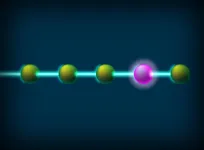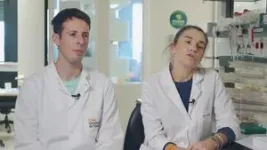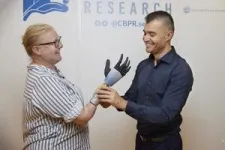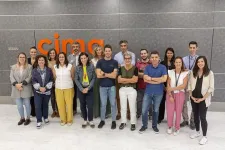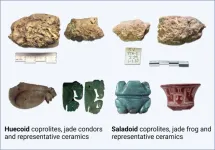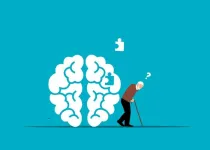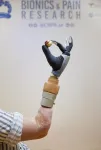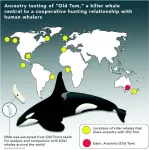(Press-News.org)
Quantum computers of the future hold promise in solving all sorts of problems. For example, they could lead to more sustainable materials, new medicines, and even crack the hardest problems in fundamental physics. But compared to classical computers in use today, rudimentary quantum computers are more prone to errors. Wouldn't it be nice if researchers could just take out a special quantum eraser and get rid of the mistakes?
Reporting in the journal Nature, a group of researchers led by Caltech is among the first to demonstrate a type of quantum eraser. The physicists show that they can pinpoint and correct for mistakes in quantum computing systems known as "erasure" errors.
"It's normally very hard to detect errors in quantum computers, because just the act of looking for errors causes more to occur," says Adam Shaw, co-lead author of the new study and a graduate student in the laboratory of Manuel Endres, a professor of physics at Caltech. "But we show that with some careful control, we can precisely locate and erase certain errors without consequence, which is where the name erasure comes from."
Quantum computers are based on the laws of physics that govern the subatomic realm, such as entanglement, a phenomenon in which particles remain connected to and mimic each other without being in direct contact. In the new study, the researchers focused on a type of quantum-computing platform that uses arrays of neutral atoms, or atoms without a charge. Specifically, they manipulated individual alkaline-earth neutral atoms confined inside "tweezers" made of laser light. The atoms were excited to high-energy states—or "Rydberg" states—in which neighboring atoms start interacting.
"The atoms in our quantum system talk to each other and generate entanglement," explains Pascal Scholl, the other co-lead author of the study and a former postdoctoral scholar at Caltech now working at a quantum computing company in France called PASQAL.
Entanglement is what allows quantum computers to outperform classical computers. "However, nature doesn't like to remain in these quantum entangled states," Scholl explains. "Eventually, an error happens, which breaks the entire quantum state. These entangled states can be thought of as baskets full of apples, where the atoms are the apples. With time, some apples will start to rot, and if these apples are not removed from the basket and replaced by fresh ones, all the apples will rapidly become rotten. It is not clear how to fully prevent these errors from happening, so the only viable option nowadays is to detect and correct them."
The new error-catching system is designed in such a way that erroneous atoms fluoresce, or light up, when hit with a laser. "We have images of the glowing atoms that tell us where the errors are, so we can either leave them out of the final statistics or apply additional laser pulses to actively correct them," Scholl says.
The theory for implementing erasure detection in neutral atom systems was first developed by Jeff Thompson, a professor of electrical and computer engineering at Princeton University, and his colleagues. That team also recently reported demonstrating the technique in the journal Nature.
By removing and locating errors in their Rydberg atom system, the Caltech team says that they can improve the overall rate of entanglement, or fidelity. In the new study, the team reports that only one in 1,000 pairs of atoms failed to become entangled. That's a factor-of-10 improvement over what was achieved previously and is the highest-ever observed entanglement rate in this type of system.
Ultimately, these results bode well for quantum computing platforms that use Rydberg neutral atom arrays. "Neutral atoms are the most scalable type of quantum computer, but they didn't have high-entanglement fidelities until now," says Shaw.
The new Nature study titled "Erasure conversion in a high-fidelity Rydberg quantum simulator," was funded by the National Science Foundation (NSF) via the Institute for Quantum Information and Matter, or IQIM, based at Caltech; the Defense Advanced Research Projects Agency; an NSF CAREER award; the Air Force Office of Scientific Research; the NSF Quantum Leap Challenge Institutes; the Department of Energy's Quantum Systems Accelerator; a Taiwan–Caltech Fellowship; and a Troesh postdoctoral fellowship. Other Caltech-affiliated authors include graduate student Richard Bing-Shiun Tsai; Ran Finkelstein, Troesh Postdoctoral Scholar Research Associate in Physics; and former postdoc Joonhee Choi, now a professor atStanford University.
END
Researchers from Cima and the Clínica Universidad de Navarra, together with the international cooperative group Diffuse Midline Glioma (DMG-ACT), have confirmed that blocking an immune checkpoint molecule reduces the tumor and prolongs survival in animal models of the most aggressive childhood cancer. This research, carried out at the Cancer Center Clínica Universidad de Navarra, shows that inhibition of TIM-3 promotes the immune memory of diffuse intrinsic stem glioma (DIPG) and improves the prognosis of the disease.
DIPG is an aggressive brain stem tumor and the leading cause of death related to pediatric cancer. Due to its location therapeutic ...
DNA analysis of mummified poop reveals two pre-Columbian Caribbean cultures ate a wide variety of plants, like maize, sweet potato, and peanuts—and tobacco and cotton traces were detected too, according to a study published October 11, 2023 in the open-access journal PLOS ONE by Jelissa Reynoso-García from the University of Puerto Rico, Puerto Rico, and colleagues.
Mummified poop, or coprolites, can reveal clues to diet and lifestyle. In this study, Reynoso-García and colleagues analyzed plant DNA isolated from coprolites sampled from archeological sites of two pre-Columbian cultures (Huecoid and Saladoid) to see what these peoples ate ...
Modifiable risk factors—including hypertension, obesity, diabetes, low HDL cholesterol and sleep disorders—confer a higher risk of dementia for people in some minority ethnic groups compared to White people, according to a new study published this week in the open-access journal PLOS ONE by Naaheed Mukadam of University College London, UK, and colleagues.
The number of people with dementia is on the rise around the world. There has been increasing interest in potentially modifiable risk factors, ...
In a new study, participants tended to rate women’s bodies as slimmer when viewed in selfie photographs than in photographs taken from other angles. Ruth Knight of York St John University, UK, and Catherine Preston of the University of York, UK, present these findings in the open-access journal PLOS ONE on October 11.
Popular on social media, selfies are portraits taken by the photo’s subject, who positions the camera away from their body but pointed back at themself. Prior research has suggested that viewing selfies might affect viewers’ judgments of the photo subjects’ attractiveness and could, in some cases, lead to ...
Karin's life took a dramatic turn when a farming accident claimed her right arm over 20 years ago. Since then, she endured excruciating phantom limb pain. “It felt like I constantly had my hand in a meat grinder, which created a high level of stress and I had to take high doses of various painkillers.” In addition to her intractable pain, she found that conventional prostheses were uncomfortable and unreliable, and thus of little help in daily life. All this changed when she received groundbreaking bionic technology that allowed her to wear a much more functional ...
UCLA researchers have developed a new treatment method using a tiny nanocapsule to help boost the immune response, making it easier for the immune system to fight and kill solid tumors.
The investigators found the approach, described in the journal Science Translational Medicine, increased the number and activity of immune cells that attack the cancer, making cancer immunotherapies work better.
“Cancer immunotherapy has reshaped the landscape of cancer treatment,” said senior author of the ...
Giving living donor liver transplant recipients an infusion of immune cells derived from their donor a week before transplantation is feasible, safe – and may lead to recipients being successfully weaned off immunosuppressant medications without rejecting the transplanted organ.
The early-stage clinical trial results by University of Pittsburgh School of Medicine scientists, reported today in Science Translational Medicine, point to a path that may spare organ transplant recipients from the serious side effects of long-term immunosuppressant use, which can include cancer, diabetes, kidney failure and susceptibility to infections.
“These trial results are very encouraging,” ...
Evolutionary biologists have for the first time decoded the genetic lineage of a famous killer whale and a pod that once worked alongside whale hunters off the coast of New South Wales.
In the Australian tradition of claiming New Zealand’s celebrities as its own, Old Tom, the leader of a pod of killer whales that famously helped whalers hunt baleen whales in the 20th century, has ancestral links to modern-day killer whales in New Zealand, according to new DNA research.
Old Tom also shared a common ancestor with killer whales from Australasia, the North Pacific, and North Atlantic Oceans, but is most similar to modern New Zealand killer whales. However, most of Tom’s ...
Love songs are at least as popular in the animal kingdom as on the radio. The importance of musically serenading your true love has driven plotlines from Twelfth Night to The Trumpet of the Swan to Happy Feet.
The latest exploration of music in the natural world is taking place in Mala Murthy’s lab at the Princeton Neuroscience Institute, where Murthy and her research group have used neural imaging, optogenetics, motion capture, modeling and artificial intelligence to pinpoint precisely where and how a fruit fly’s brain toggles between its standard solo and its mating serenade. Their research ...
PHILADELPHIA -- New research published by a team at the Annenberg Public Policy Center of the University of Pennsylvania finds that experiencing days in which the temperature exceeds previous highs for that time of year affects people’s perception of weather trends.
Published in Scientific Reports, the study “Record-breaking Heat Days Disproportionately Influence Heat Perceptions” finds that living in an area with record-breaking heat effectively increases perceptions that the weather is getting hotter. The research was co-authored by economist Timothy Hyde, a postdoctoral fellow in APPC’s Science of Science Communication Division, and psychologist and communication ...
